Go Lean Commentary
The American association is just not working for failing Puerto Rico (PR). This is no longer a theory; this is now a fact!
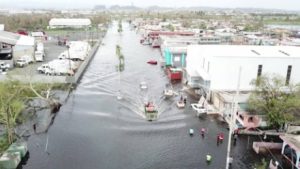
The devastating Category 5 Hurricane Maria came by and desolated the island, 9 months ago (September 18, 2017). The restoration and recovery is finally complete …
Wait, no!
The restoration and recovery is still not complete, even though it’s the eve of a new Hurricane Season (June 1).
In life, Puerto Rico just gets no love.
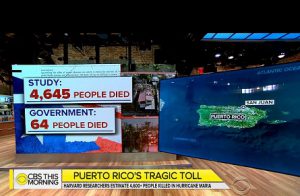 Unfortunately, this is true in death too – we learn now that even the resultant deaths from Hurricane Maria had been under counted.
Unfortunately, this is true in death too – we learn now that even the resultant deaths from Hurricane Maria had been under counted.
What? How? Why?
The act of counting deaths is more straight-forward than the Washington and San Juan officials would have you believe. Simply count the number of mortalities (death certificates issued) for the 4th Quarter of the last few years. The PR government try to assert that the number of deaths were 64 people; and yet demographers and other social scientists counted the mortality rate for 4th Quarter 2017 and the 4th Quarters in previous years and the real count is more like:
4600+
Wait, wait … don’t tell me! According to this story here, “researchers concluded the final death count could [actually] be as high as 8,500”:
Title: Puerto Rico governor welcomes “real number” of Hurricane Maria deaths after shocking report
A new Harvard University study says the death toll from Hurricane Maria last year is dramatically larger than reported. The study, published in the New England Journal of Medicine, estimates more than 4,600 people died on the island. The official government death toll is just 64.
Researchers randomly knocked on doors and asked if anyone died there. There were more questions — but that’s how it started. It took six weeks and $50,000 from Harvard to come up with a number that is stunning, reports CBS News’ David Begnaud.
Puerto Rico’s Governor Ricardo Rosselló, who himself is a scientist, seemed blindsided by the Harvard study. His government wasn’t involved and he didn’t know it was being released.
“We welcome all studies,” Rosselló said at a press conference Tuesday. “We want the real number to come out. We had a protocol that really was subpar and we recognize it.”
The government protocol is for doctors to tell the government if a death was caused by Hurricane Maria. Families have to petition the government to investigate if they disagree with a doctor’s opinion.
The Harvard study surveyed more than 3,000 homes across the island and found the mortality rate rose 62 percent in the three months after Hurricane Maria compared to that period the year before. Researchers concluded the final death count could be as high as 8,500.
“One third of our deaths were reported because lack of medical treatment,” said Domingo Marques, who was a lead author of the study.
During his visit to Puerto Rico last October, President Trump hailed the low death toll, which at the time was 16. He compared it to Hurricane Katrina. In light of the Harvard report, a White House spokesperson said the people of Puerto Rico deserve nothing less than transparency and accountability.
“The negligence that allowed those lives to be lost, needs to be accounted for,” San Juan mayor Carmen Yulín Cruz said.
Cruz has blasted Mr. Trump for being tone deaf and slow to respond. When asked to evaluate her own response she said, “I know I didn’t get to everyone… We did the best we could, but that wasn’t’ good enough. That wasn’t good enough.”
Why this story is more than just a shocking number? For every death that is certified by a government official to be related to Hurricane Maria, family members are eligible to have the federal government help pay for funeral expenses. The numbers matter.
© 2018 CBS Interactive Inc. All Rights Reserved.
Source: CBS News; retrieved May 30, 2018 from: https://www.cbsnews.com/news/hurricane-maria-death-toll-puerto-rico-harvard-university-study/
Related stories:
————-
VIDEO – Puerto Rico’s Tragic Toll – https://www.cbsnews.com/video/puerto-rico-hurricane-death-toll-in-the-thousands-researchers-say/
Posted May 30, 2018 – CBS This Morning: Harvard Researchers estimate 4,600+ people killed in Hurricane Maria.
Wow; these people, this island – Puerto Rico – don’t even get respect in death.
Call a spade a spade!
There is no love for Puerto Rico. (This is not “our” assessment alone; see the Mayor of San Juan in the Appendix VIDEO).
Time to make a move! It is past time now for Puerto Rico to change from its parasite status as an American Protectorate and graduate to being a US State. Or maybe, it’s time for Puerto Rico to divorce the American relationship entirely and become an independent nation – as was done in the Philippines. In a previous commentary by the movement behind the book Go Lean…Caribbean, the assertion was that the American association maybe the problem for Puerto Rico. That blog-commentary stated:
Where is your pride Puerto Rico? “Have you no sense of decency?” You are not being loved; you are being pitied.
No wait, even the pity is gone – compassion exhaustion after the prior hurricanes Harvey and Irma; plus forest fires in California.
Puerto Rico: You “cannot win; cannot break-even and cannot get out of the game”.
… Puerto Rico is now at the cross roads; things will get worse before it gets worse! … The outcome for Puerto Rico, and other Caribbean islands, would be defection – “forced uprooting-displacement of large communities”. Truly, this is what has happened.
The book Go Lean…Caribbean – available to download for free – serves as a roadmap for the introduction and implementation of the technocratic Caribbean Union Trade Federation (CU), for the elevation of Caribbean society – for all member-states, including the American Territories of Puerto Rico and the US Virgin Islands. This roadmap asserts that regional integration is the key for future Caribbean success; it thus presents these 3 prime directives:
- Optimization of the economic engines in order to grow the regional economy to $800 Billion and create 2.2 million new jobs. Puerto Ricans have been defecting for decade looking for jobs.
- Establishment of a security apparatus to ensure public safety and protect the resultant economic engines. This security pact encompasses an emergency planning/response apparatus to deal with the reality of natural disasters. The CU mandate is to protect against any Failed-State
- Improve Caribbean governance to support these engines, including a separation-of-powers between the member-states and CU federal agencies.
To Puerto Rico, we entreat you: there are successful countries that are separate and detached of America. Your status quo is not the only destiny.
The Go Lean book stresses reform for Caribbean society. It reminds the readers of the American Revolutionary experience: the original 13 colonies were failing under the weight of their British baggage. So to reach success, they had to “break of the shackles“ of British colonialism.

This is Puerto Rico today! They need to “break of the shackles of American colonialism”. This island needs to echo the revolutionary sentiments of “Founding Father” Thomas Jefferson, who wrote in the Declaration of Independence:
… That whenever any form of government becomes destructive to these ends, it is the right of the people to alter or to abolish it, and to institute new government, laying its foundation on such principles and organizing its powers in such form, as to them shall seem most likely to effect their safety and happiness. Prudence, indeed, will dictate that governments long established should not be changed for light and transient causes; and accordingly all experience hath shown that mankind are more disposed to suffer, while evils are sufferable, than to right themselves by abolishing the forms to which they are accustomed. But when a long train of abuses and usurpations, pursuing invariably the same object evinces a design to reduce them under absolute despotism, it is their right, it is their duty, to throw off such government, and to provide new guards for their future security. — Such has been the patient sufferance of these [former] colonies …- book Go Lean…Caribbean (Page 10).
These words, this break from a failing status quo was an early motivation for the CU/Go Lean roadmap, as pronounced in the opening Declaration of Interdependence (Pages 12 – 13) of the book:
xi. Whereas all men are entitled to the benefits of good governance in a free society, “new guards” must be enacted to dissuade the emergence of incompetence, corruption, nepotism and cronyism at the peril of the people’s best interest. The Federation must guarantee the executions of a social contract between government and the governed.
xii. Whereas the legacy in recent times in individual states may be that of ineffectual governance with no redress to higher authority, the accedence of this Federation will ensure accountability and escalation of the human and civil rights of the people for good governance, justice assurances, due process and the rule of law. As such, any threats of a “failed state” status for any member state must enact emergency measures on behalf of the Federation to protect the human, civil and property rights of the citizens, residents, allies, trading partners, and visitors of the affected member state and the Federation as a whole.
xvi. Whereas security of our homeland is inextricably linked to prosperity of the homeland, the economic and security interest of the region needs to be aligned under the same governance. Since economic crimes … can imperil the functioning of the wheels of commerce for all the citizenry, the accedence of this Federation must equip the security apparatus with the tools and techniques for predictive and proactive interdictions.
The Go Lean book provides 370-pages of turn-by-turn instructions on “how” to adopt new community ethos, plus the strategies, tactics, implementations and advocacies to execute so as to effect a reboot and turn-around. In fact, the book (Page 33) provides one advocacy specifically dedicated to the subject of Turn-arounds. See the headlines, excerpts and quotations here:
10 Ways to Impact Turn-Arounds
| 1 | Lean-in for the Caribbean Single Market and Economy The CU treaty facilitates a reboot of the region’s economic engines, security apparatus and emergency management(preparation/response for the 30 member-states, 42 million people and $800 Billion GDP. The treaty allows for theestablishment of Self Governing Entities where the CU will be the municipal administrator – this allows for civic planning, zoning, demolitions and imminent domain decision-making separate from the member-states. While too, dispositions of abandoned buildings in the member-states still relate to CU missions, as in the protection of image (“psychological trauma” is inflicted daily on neighbors of abandoned structures) and the quest for beauty. While beauty, aesthetics and preservation may be paramount for communities, these should only be a concern after basic needs are satisfied – housing is a basic need. The economics of housing can be impacted with the over-supply ofabandoned buildings, as it brings the value down for other properties, and sends out the false vision, like Detroit’sabandoned structures, that just a “little rehab” and their new manifestations will be readily available. Learning from Detroit, it is more beneficial to raze abandoned buildings and build anew – turn-around, rather than considering restoration or preservation. |
| 2 | Bankruptcy Processing |
| 3 | Homeland Security Concerns Abandoned buildings are a security concern for the community as these buildings are often used as drug “dens” or to house other illegal/criminal activities. Playing children can also be ensnared by dilapidated structures and thus consume emergency medical services. Therefore, impacting turn-arounds of abandoned properties is proactive for CU security. |
| 4 | Property Tax Revenue and Services |
| 5 | Clean Slate / Blank Canvas
By razing abandoned buildings, the community can truly engage a turn-around strategy. The property now becomes a clean slate / blank canvas, ready for any new development or a return to a natural disposition of Caribbean flora/fauna. |
| 6 | Explosives Use – Art & Science |
| 7 | Demolition Jobs |
| 8 | Recycling Materials |
| 9 | Community Gardens and Fruit Trees – by Non-Government Organizations (NGO) |
| 10 | Common Grazing Rights |
To Washington, these Caribbean islands are far-off territories – out of sight, out of mind. But these Caribbean islands are our home:
Oh, island in the sun. Willed to me by my father’s hand.
So the Caribbean stakeholders in the region must be the ones to foster the workable solutions for the region: a better disaster preparation and response apparatus. We must not count on the “kindness of strangers”!
Duh!!! – The jury is in! They do not even count our dead!
The Way Forward for Puerto Rico must be the Way Forward for the rest of the Caribbean region – we are “all in the same boat”.
Hurricane Season 2018 starts tomorrow – June 1. (The American president, Donald Trump, even denies Climate Change as a fact or a science. By denying our reality; he is denying “us”).
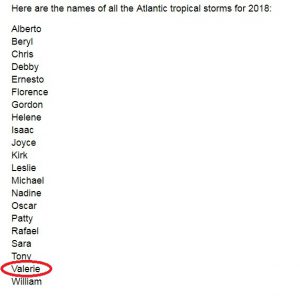
This assertion – Puerto Rico needing to rely more on their geographical neighbors rather than the American hegemony – is not new. This has been the consistent pleading from this Go Lean movement. Consider these previous blog-commentaries:
| https://goleancaribbean.com/blog/?p=14718 | ‘At the Table’ or ‘On the Menu’ – PR’s No Vote; No Voice in D.C. |
| https://goleancaribbean.com/blog/?p=14101 | Wait, ‘We Are The World’ – Raising money for PR Relief |
| https://goleancaribbean.com/blog/?p=13995 | First Steps for PR & USVI – Congressional Interstate Compacts |
| https://goleancaribbean.com/blog/?p=13391 | After Maria, Failed-State Indicators: Destruction and Defection |
| https://goleancaribbean.com/blog/?p=12959 | After Irma, America Should Scrap the ‘Jones Act’ |
| https://goleancaribbean.com/blog/?p=12126 | Commerce of the Seas – Stupidity of the Jones Act |
| https://goleancaribbean.com/blog/?p=11963 | Oscar López Rivera: The ‘Nelson Mandela’ of Puerto Rico? |
| https://goleancaribbean.com/blog/?p=11647 | Righting a Wrong: Puerto Rico’s Bankruptcy |
| https://goleancaribbean.com/blog/?p=7963 | ‘Like a Good Neighbor’ – Being there for Puerto Rico |
| https://goleancaribbean.com/blog/?p=4551 | US Territories – Between a ‘rock and a hard place’ |
| https://goleancaribbean.com/blog/?p=1325 | Puerto Rico Governor Signs Bill on Small Businesses |
| https://goleancaribbean.com/blog/?p=599 | Ailing Puerto Rico open to radical economic fixes |
The PR should not stand for this. Time to move … away from this inconsequential, parasitic status quo. It is past time for debate:
“A little less conversation; a little more action” – Song: Elvis Presley.
The responsibility to improve our homeland is ours alone. The quest to make our homeland a better place to live, work and play must be engaged by Caribbean people. The rest of the world have no love for us. We must love ourselves, first and foremost! Puerto Rico, you do not have to do this heavy-lifting task alone; we need to lift the same heavy load. Let’s do it together! 🙂
Download the free e-book of Go Lean … Caribbean – now!
Sign the petition to lean-in for this roadmap for the Caribbean Union Trade Federation.
—————
Appendix VIDEO – San Juan mayor on hurricane death toll study – https://www.cbsnews.com/video/san-juan-mayor-criticizes-local-leaders-trump-after-hurricane-death-toll-study/
Posted May 30, 2018 – CBS This Morning: San Juan mayor criticizes local leaders, Trump after hurricane death toll study

 Saying that “we are the best”, really does not bring any solace.
Saying that “we are the best”, really does not bring any solace. Press Release: Saint Lucia has been recognized as the “Best Island in the Caribbean” by Global Traveler at their Sixth Annual Leisure Lifestyle Awards. Global Traveler is a monthly publication that attracts some 300,000 readers and connects with U.S.-based frequent, affluent, international travellers who have an average net worth of $2 million.
Press Release: Saint Lucia has been recognized as the “Best Island in the Caribbean” by Global Traveler at their Sixth Annual Leisure Lifestyle Awards. Global Traveler is a monthly publication that attracts some 300,000 readers and connects with U.S.-based frequent, affluent, international travellers who have an average net worth of $2 million.

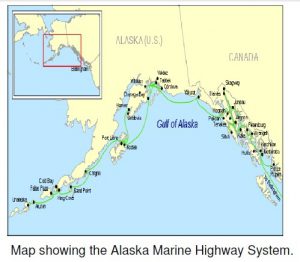
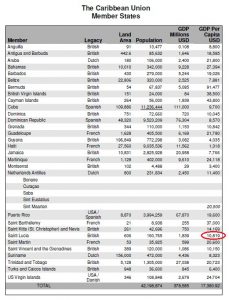




 “Be the change you want to see in the world” – Mahatma Gandhi
“Be the change you want to see in the world” – Mahatma Gandhi

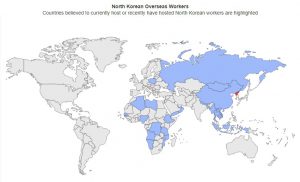
 CASTRIES – The St Lucia government has warned of “false advertisements” in circulation on the social media and other platforms indicating that the Labour Department here is now accepting applications from nationals for work under the Canadian Farm Worker Programme.
CASTRIES – The St Lucia government has warned of “false advertisements” in circulation on the social media and other platforms indicating that the Labour Department here is now accepting applications from nationals for work under the Canadian Farm Worker Programme.







 It’s simple: Numbers don’t lie!
It’s simple: Numbers don’t lie!
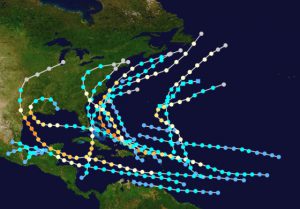 Hurricane Season 20018 is about to begun; (June 1).
Hurricane Season 20018 is about to begun; (June 1). Fixing Climate Change in the US is out-of-scope for this Go Lean…Caribbean effort. Our scope is the Caribbean only. But we must not be hypocritical … or parasitic. We must do our own heavy-lifting and fix our own communities, in preparation for a global abatement initiative – no matter how small we may perceive our impact may be because of our small size in the grand scheme of the planet’s population. How else do we shame the Big Polluters?!
Fixing Climate Change in the US is out-of-scope for this Go Lean…Caribbean effort. Our scope is the Caribbean only. But we must not be hypocritical … or parasitic. We must do our own heavy-lifting and fix our own communities, in preparation for a global abatement initiative – no matter how small we may perceive our impact may be because of our small size in the grand scheme of the planet’s population. How else do we shame the Big Polluters?!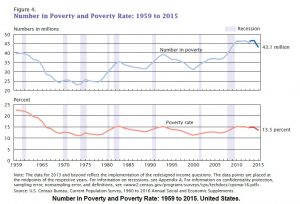
 Wait, who?
Wait, who?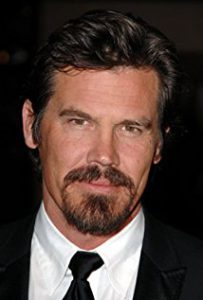 The main character Thanos is portrayed by the actor
The main character Thanos is portrayed by the actor 
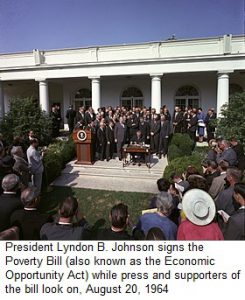 …
… 

 Were you alive in the 1960’s or 1970’s?
Were you alive in the 1960’s or 1970’s? “Put your money where your mouth is” – Popular Challenge
“Put your money where your mouth is” – Popular Challenge In the United States, a 401(k) plan is the tax-qualified,
In the United States, a 401(k) plan is the tax-qualified, 

 Did the revolution for the 60’s Hippies simply fail? Did they retreat into the mainstream?
Did the revolution for the 60’s Hippies simply fail? Did they retreat into the mainstream?